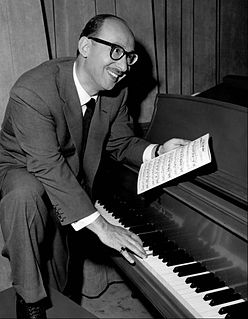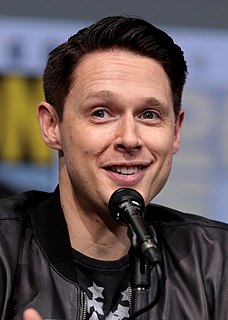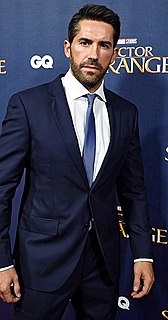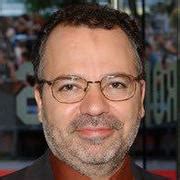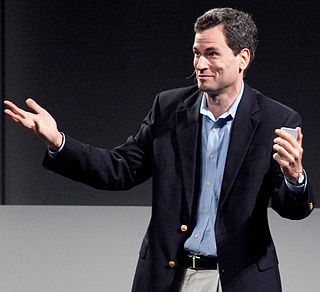A Quote by Sammy Cahn
I'll remember this to my grave. We all walked into a room to see the screen tests. The first screen test was Marion Hutton's. Then came Janis Paige [who ended up with a part in the film]. Then on the screen came Doris Day. I can only tell you, the screen just exploded. There was absolutely no question. A great star was born and the rest is history.
Related Quotes
I'm a Brit and I just put myself on tape, back in London, for a very distant American project that I thought I didn't stand a chance of getting. And then, I got a call about a week after I had submitted my tape, just saying, "They really like you and want to screen test you." So, I flew to L.A. and did the screen test. And then, I met Elijah [Wood] and did a screen test with him. And then, I had a very nerve-wracking few days back home, waiting and waiting and thinking, "This cannot possibly go my way because that would just be too good to be true." And then, it did.
'Paranormal Activity' had fifty versions because it was $250 to reshoot. We'd screen it, see one thing wrong, shoot for an hour, fix it, and then screen it again. You don't have to be disciplined about it. On a regular movie, you have to screen it and think of every problem, reshoot for three days and solve every problem, and then you're done.
That was Robert Aldrich. And that [Emperor Of The North] was one of the only times I actually got a part in a movie in the conventional way: The role was there, I auditioned, I auditioned again, and then I actually did a full-fledged screen test, which they shot on a soundstage on the lot at 20th Century Fox. They put up a set, and Robert Aldrich actually directed me in this screen test.
I was about 10 years old. I just remember the film Enter the Dragon with Bruce Lee blowing my mind on the screen and I thought to myself, "That's what I want to do for a living when I'm older." Bruce Lee was so magnetic and charismatic and held the screen so well. It's just a very powerful performance in that film. That's the first memory I have - him in that movie.
The biggest surprise watching video on the tiny, 2.5-inch screen (320 by 240 pixels) is completely immersive. Three unexpected factors are at work. First, the picture itself is sharp and vivid, with crisp action that never smears the screen is noticeably brighter than on previous iPods. Second, because the audio is piped directly into your ear sockets, it has much higher fidelity and presence than most peoples TV sets. Finally, remember that a 2.5-inch screen a foot from your face fills as much of your vision as a much larger screen thats across the room.
